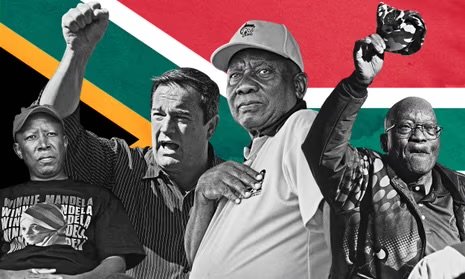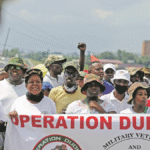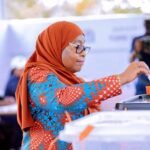South Africans are participating in a crucial election, marking 30 years since the end of apartheid. This election comes at a challenging time for the country, with a struggling economy, high youth unemployment, severe energy shortages, and increasing crime rates. The ruling party, the African National Congress (ANC), is facing significant difficulties, which may be reflected in the election results nationwide.
High voter turnout has been reported at many polling stations since Wednesday, with long lines of people eager to vote. Interviews conducted by journalists indicate a widespread desire among the public for government change, hoping for a better future for South Africa.
The election commission has acknowledged that the high voter turnout, new voting regulations, and an additional ballot have caused delays.
On Thursday, South Africans anxiously awaited the results of this tightly contested national election. Early returns indicate poor performance for the ANC, which has governed the country for three decades. While the ANC is currently leading, followed by the Democratic Alliance (DA) and the Economic Freedom Fighters (EFF), it is losing its majority vote. Projections suggest that the ANC may receive less than 50 percent of the vote, a significant drop from the 57.5 percent it received five years ago.
If the ANC falls below 50 percent, it will need to form a coalition with rival parties to stay in power. In South Africa’s parliamentary system, President Cyril Ramaphosa, the ANC leader, would require opposition support to serve a second term. A weakened ANC would mark a significant shift in South African politics, moving from a single-party dominance to governance by fragile coalitions. This strategy has had mixed success in smaller municipalities and has led to political infighting in larger cities like Johannesburg.
With over one-third of all voting districts counted, early results show the ANC with 43 percent of the vote, trailing in key provinces it previously won easily. These early results come mainly from rural areas that have traditionally supported the ANC. In Gauteng, the most populous province, only 12 percent of voting districts had reported results by Thursday.
There are 51 opposition parties competing for votes. The largest, the Democratic Alliance, led by John Steenhuisen, has formed alliances with smaller opposition groups. Without support from the Democratic Alliance, the ANC may need to form a coalition with the Economic Freedom Fighters, a leftist party popular among young voters. EFF leader Julius Malema founded the party in 2013 after being expelled from the ANC’s youth league.
A new party, uMkhonto weSizwe (MK), led by former president Jacob Zuma, has shown early strength in his home province of KwaZulu Natal. Zuma’s daughter, Duduzile Zuma-Sambudla, has stated that the MK party would not collaborate with Ramaphosa.
Some analysts believe the ANC might still secure over 50 percent of the vote, potentially regaining support in provinces like the Eastern Cape and Limpopo. Final results are expected by the weekend, suggesting a significant shift in South African politics.










